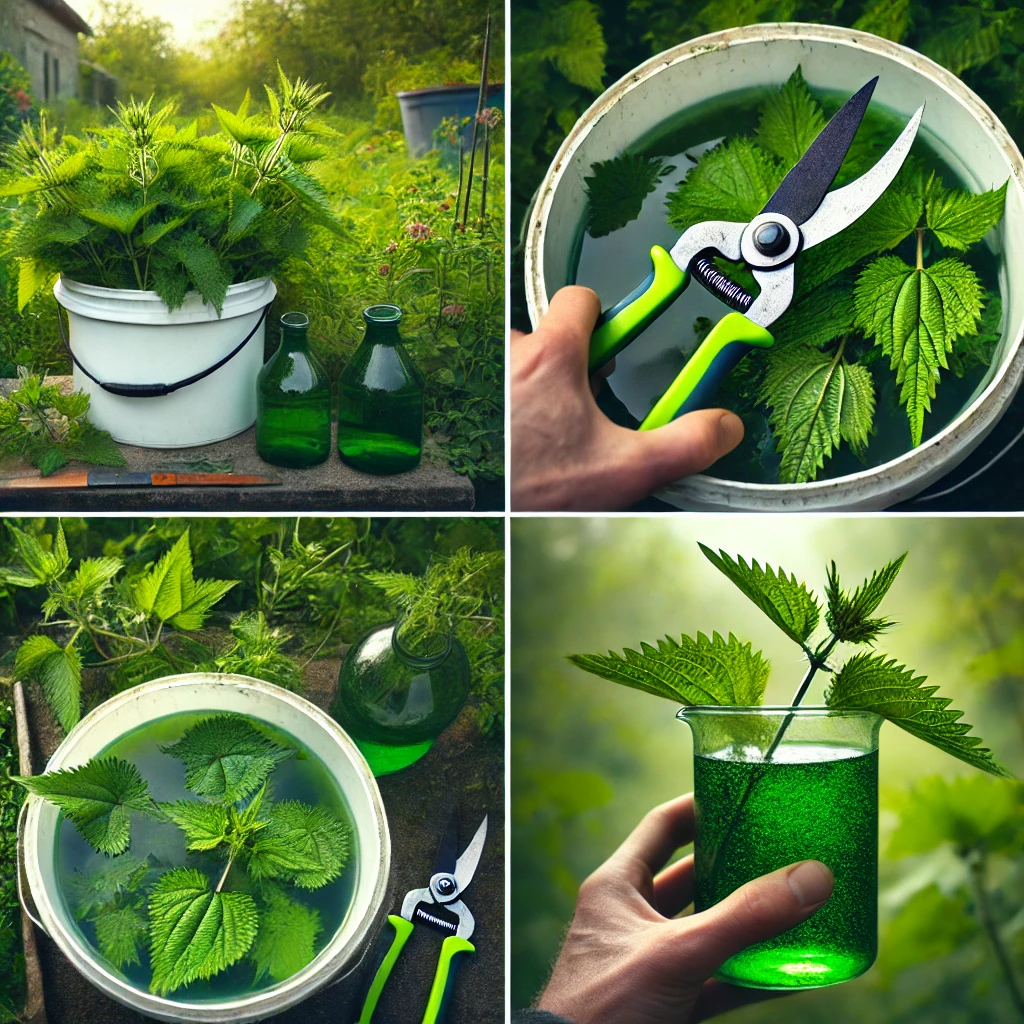Nettle fertilizer and nettle insecticide are invaluable resources for organic gardeners. These easy-to-make, environmentally friendly solutions can improve plant health, enrich soil, and manage pests without the use of harmful chemicals. Below, we explore the importance of these nettle-based products, how to make them, and their benefits for your garden.
The Importance of Nettle Fertilizer
Nettle fertilizer, often called nettle tea or nettle liquid fertilizer, is a nutrient-dense, natural plant food that can significantly boost the health and productivity of your garden. Here’s why it’s essential:
- Nutrient-Rich: Nettles are loaded with nutrients like nitrogen, potassium, phosphorus, and trace minerals, all vital for plant growth and development.
- Improved Soil Quality: Nettle fertilizer adds organic matter to the soil, improving soil structure, water retention, and nutrient availability.
- Natural Pest Deterrent: The strong odor of nettle fertilizer helps deter some garden pests, reducing the need for chemical pesticides.
- Cost-Effective: Making your own nettle fertilizer is an affordable alternative to store-bought products.
How to Make Nettle Fertilizer
Making nettle fertilizer is simple and cost-effective. Follow these steps:
Ingredients:
- Fresh nettle leaves (wear gloves when handling)
- A large container or bucket
- Water
Instructions:
- Collect Nettle Leaves: Harvest fresh nettle leaves in spring or early summer when they’re most potent. Be sure to wear gloves to avoid getting stung.
- Fill a Container: Fill a large bucket or container with water, depending on the amount of nettle leaves you’ve collected.
- Add Nettle Leaves: Place the nettle leaves in the container. Use a ratio of 1 part nettle leaves to 10 parts water. For example, if you have 1 gallon of leaves, use 10 gallons of water.
- Soak the Leaves: Let the leaves steep in water for 2-3 weeks. Stir the mixture every few days to aerate it.
- Strain and Use: After steeping, strain the liquid. Dilute it (1 part nettle fertilizer to 10 parts water) before applying to plants.
The Importance of Nettle Insecticide
Nettle insecticide, or nettle-based pest spray, is an organic and eco-friendly solution for managing pests in the garden. Here’s why it’s useful:
- Environmentally Friendly: It’s a chemical-free alternative to synthetic insecticides, minimizing harm to beneficial insects and the ecosystem.
- Cost-Effective: Making your own nettle insecticide reduces the need for expensive commercial products.
- Effective Pest Control: Nettle insecticide helps control pests like aphids, caterpillars, and mites.
How to Make Nettle Insecticide
Creating nettle insecticide is as simple as making nettle fertilizer. Here’s a guide:
Ingredients:
- Fresh nettle leaves (wear gloves when handling)
- Water
- Organic, non-toxic soap
Instructions:
- Collect Nettle Leaves: As with the fertilizer, gather fresh nettle leaves during the growing season.
- Fill a Container: Use a ratio of 1 part nettle leaves to 5 parts water. For example, if you have 1 quart of nettle leaves, use 5 quarts of water.
- Soak the Leaves: Let the leaves soak in the water for about 24 hours.
- Strain the Liquid: After 24 hours, strain the mixture into a spray bottle.
- Add Soap: Add a few drops of organic, non-toxic soap to the liquid. The soap helps the mixture adhere to pests and plants.
- Spray on Plants: Apply the nettle insecticide to plants, focusing on areas affected by pests. Spray both the upper and lower sides of the leaves. Reapply every 7-10 days as needed.
Benefits of Nettle-Based Solutions
By using nettle fertilizer and insecticide, you can:
- Enhance Plant Health: Nettle fertilizer boosts plant growth and enriches the soil with essential nutrients.
- Promote Sustainability: Nettle-based products are eco-friendly, reducing your garden’s reliance on synthetic chemicals.
- Manage Pests Organically: Nettle insecticide effectively controls pests while being safe for beneficial insects and pollinators.
Conclusion
Nettle fertilizer and nettle insecticide are powerful tools for gardeners committed to organic and sustainable practices. These homemade solutions offer significant benefits, from enriching the soil and promoting plant growth to managing pests effectively without harmful chemicals. By incorporating nettle-based products into your gardening routine, you can create a healthier, more productive garden while minimizing environmental impact.
